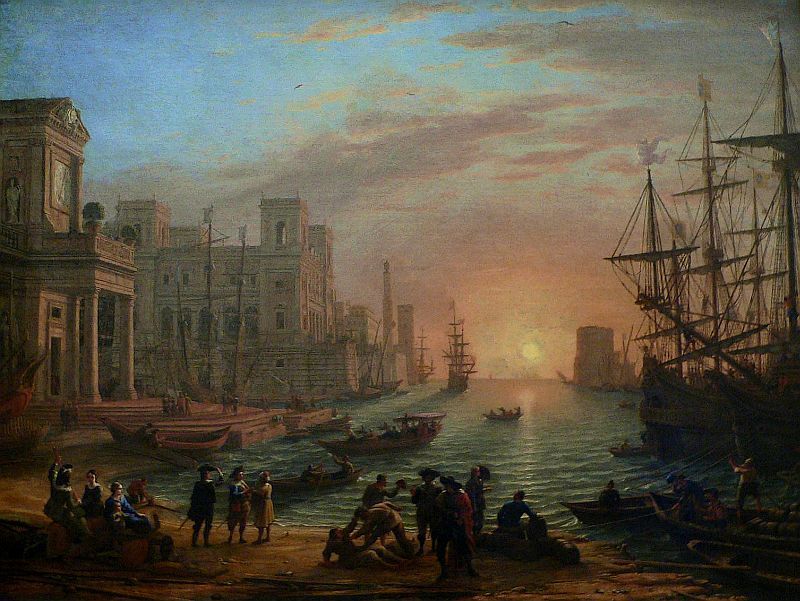Teylers Museum and the Musée du Louvre presented the first comprehensive exhibition on Claude Lorrain (1600 - 1682) ever held in the Netherlands from 29 September 2011 to 8 January 2012. This French landscape painter is one of the most important masters in the history of art. Popes, kings and the entire European upper class competed to acquire his paintings of enchanting harbour cities and idyllic park landscapes full of references to the Classics. Claude Lorrain was one of the most famous and popular artists in 17th century Europe.
Master of the golden light
Claude Lorrain was the first painter to give the sun a central role in his work. His golden Italian light was famous all over the world. Roaming the countryside near Rome both in the early morning and in the evening, he aimed to capture the light on paper and canvas. Great artists including William Turner and Jean-Baptiste Corot were inspired by his work. In England, landscaped gardens - including classical buildings - were created based on his paintings.
Unique collections of drawings
Teylers Museum owns a unique range of early Claude Lorrain drawings which were acquired back in 1790, a mere six years after the museum opened. These works of art are in excellent condition as they have rarely or never been exhibited before. The drawings from the Musée du Louvre are from a later stage and are the perfect complement to the Teylers Museum collection.
Important paintings on loan
Key paintings from museums in the United States and Europe will be shown alongside these collections of drawings. The National Galleries of Scotland have given special permission for Lorrain's largest and most ambitious painting -

Landscape with Apollo and the Muses (1652)
- to travel to Haarlem for the exhibition. All in all, 78 drawings, 13 paintings and four etchings will display his exceptional talent.

Samuel anointing David, 1643


Harbour with setting sun, 1639
Complete exhibit here
Two more examples:

Herdsman with two oxen and three goats, ca. 1646

Landscape with Jacob wrestling with the angel, 1672

















